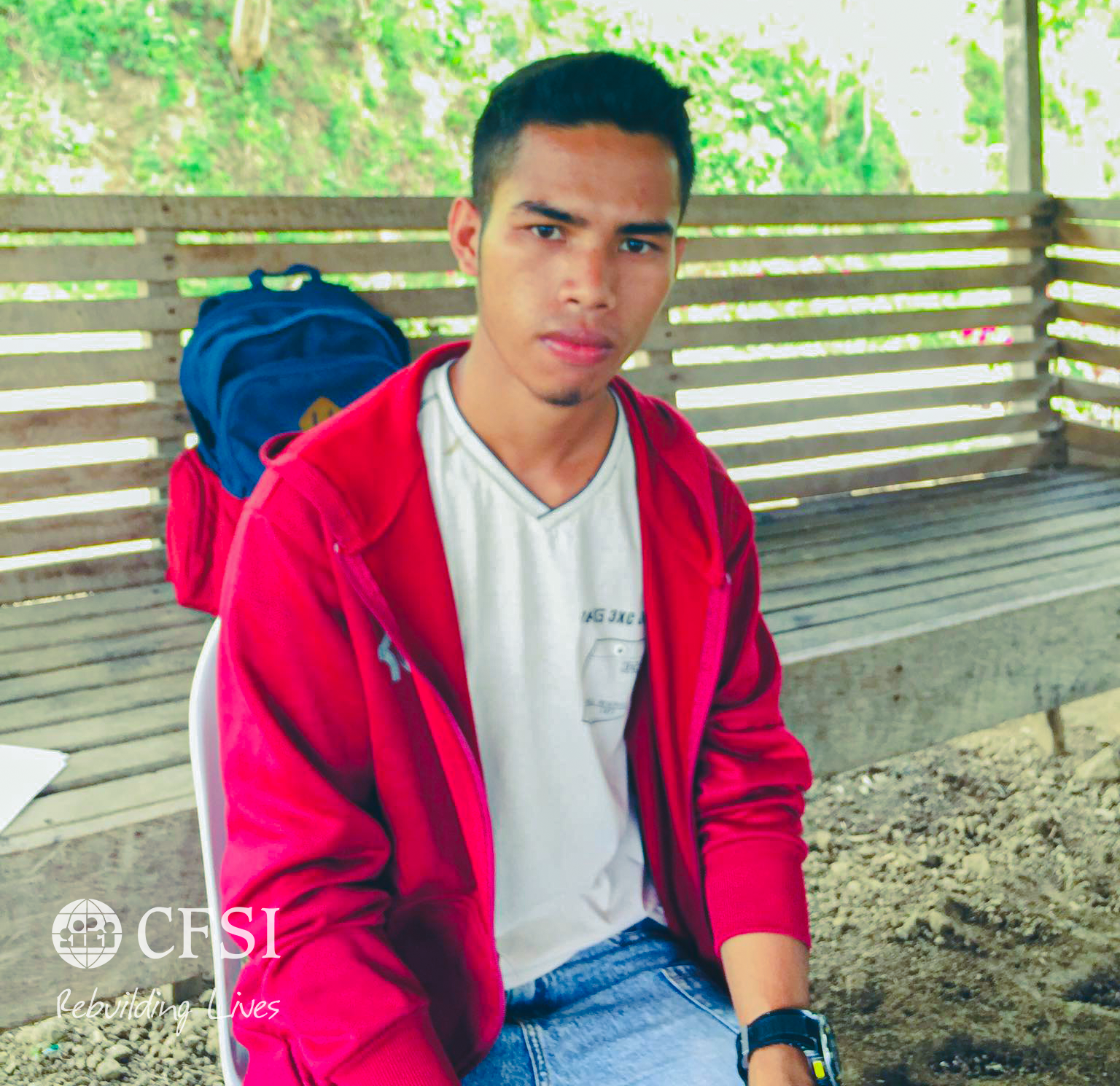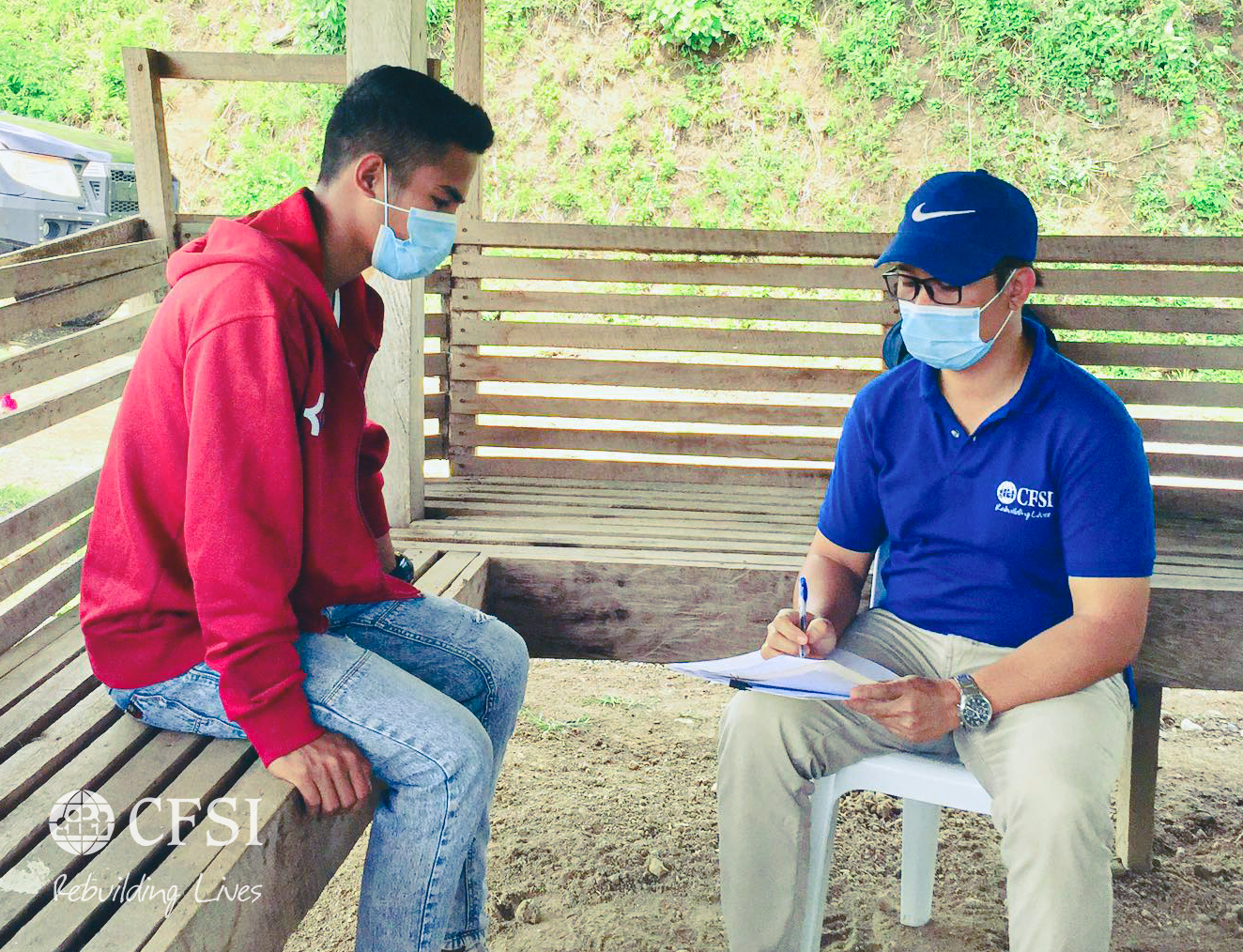A recent agricultural seminar Jomar Cabalo attended was an eye-opener for the 21-year-old farmer, as well as others of age.
Friends had urged him to participate in events organized under the Mindanao Trust Fund-Reconstruction and Development Project (MTF-RDP) to improve livelihood potential in six major camps of the Moro Islamic Liberation Front (MILF) as part of the peace process with the government.
Married at a young age, Cabalo had been forced to work in the fields of Barangay Saniag in Ampatuan, Maguindanao, to earn a living for his family while attending to his studies as a senior high school student.
The prospect of learning new ways of increasing production was irresistible. And so Cabalo joined some MTF-RDP/3 sessions at Camp Omar.
“I am a farmer who lives in a farming community, so I might as well build on what I have,” he said. “Besides, I have long sought to attend these training programs, where I could apply what I have learned in what I am doing in the field.”
Cabalo talked to a team from the Community and Family Services International (CFSI) during an MTF-RDP/3 productivity training on vegetable gardening for the youth sector of Barangay Saniag.
The event was designed to increase agricultural production and incomes amid a general economic meltdown as a result of the Coronavirus Disease (COVID-19) pandemic.
The MTF-RDP is a multi-donor initiative administered by the World Bank since 2005. It is implemented by the humanitarian agency CFSI and the Bangsamoro Development Agency (BDA) to provide people in conflict-affected areas access to socio-economic opportunities and basic services.
“I have heard of the MTF-RDP for a long time since it has already given us multiple projects and opportunities,” Cabalo said. “But what I like now is that they have given the youth sector more focus. It is like what I am dreaming to have – a successful, united, and cooperative youth like us who are the future of this community,” he added.

Young farmer Jomar Cabalo, 21, engages in agricultural training and seminars of MTF-RDP/3.
A USD3 million grant from the European Union, Sweden, Australia, Canada, the United States, and New Zealand supports the third phase of this World Bank initiative, which ends this month.
An Agri-Trading and Production Facility is also under construction at Barangay Saniag. This will help farmers and villagers create and display their crops or hold large-scale activities.
As the project also seeks to foster participatory governance through the engagement with line ministries of the Bangsamoro Autonomous Region in Muslim Mindanao, resource persons from the Ministry of Agriculture, Fisheries, and Agrarian Reform were invited to facilitate the series of productivity training.
The barangay has also hosted training programs on corn production, cooking, crafting, coconut processing and gritting, and powdering.
“This is a great help for us although we already know the basics because we are farmers in the first place,” said Cabalo. “But techniques like composting without spending a single peso and fertilizer spraying will be very valuable for us,” he said.
Another batch from the youth sector will be joining skills training scheduled later this month. The group will be provided with starter kits as the MTF-RDP/3 boosts for sustainability.
“I also want my fellow youth to find their direction,” said Cabalo. “This training seems like a little thing but when we work hard for it, we do not have to rely on others to live especially for persons who have responsibilities like me,” he said.
—-

Community Development Specialist Olympus Colcol (right) interviews Jomar Cabalo on his learnings from the agricultural training of MTF-RDP/3.
This article was written with reports from Olympus Colcol, the Community Development Specialist of CFSI under the Mindanao Trust Fund-Reconstruction and Development Project Phase 3

